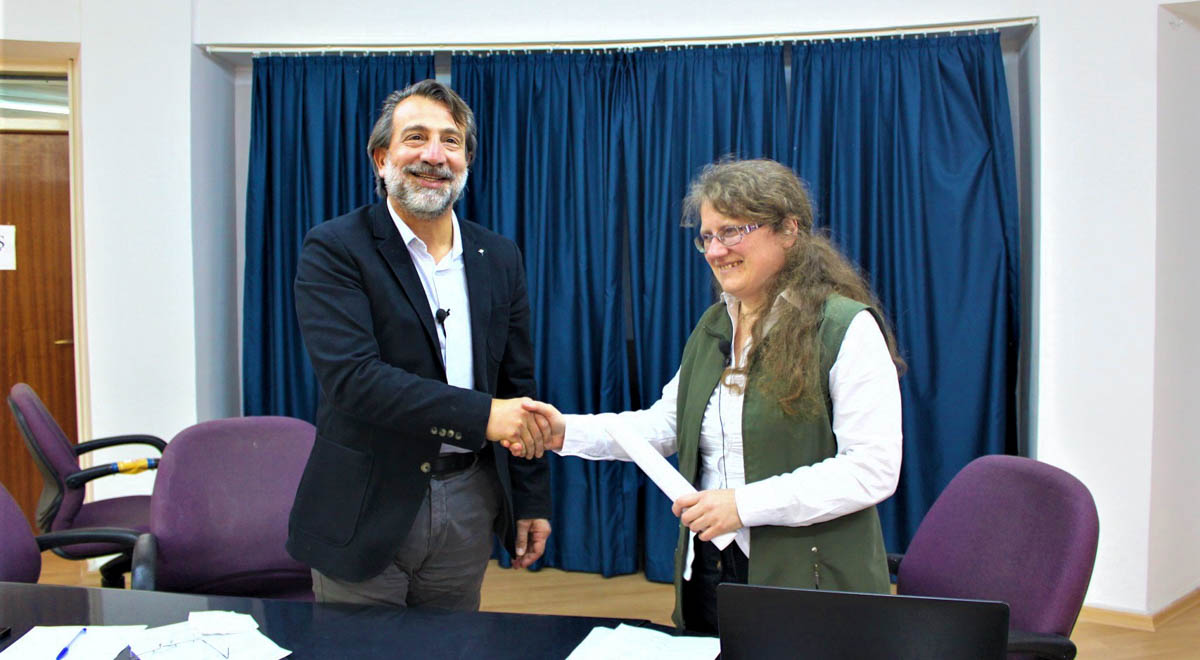Eastern Mediterranean University Cyprus Policy Center (EMU CPC) and EMU Faculty of Business and Economics, Department of Political Science and International Relations organized a seminar titled “Key Features of Russian Style of Thinking: Continuity and Change”. The opening speech of the seminar was delivered by the Chair of EMU Political Science and International Relations Department and CPC, Prof. Dr. Ahmet Sözen. In his speech, Prof. Dr. Sözen stated that the topic discussed and its timing are very appropriate considering the latest developments, including the Russian military operation in Ukraine. Prof. Dr. Sözen then introduced EMU Political Science and International Relations Department Research Assistant Dr. Vera Liubchak. After receiving her PhD in Cultural Philosophy from Tomsk State University in Russia in 2010, she worked as an Associate Professor in the Department of History, Political Science and Cultural Studies at Novosibirsk State University in Russia until 2020. In addition to the features of the Russian way of thinking, Liubchak continues to work on peacekeeping issues. Dr. Liubchak has been pursuing her second doctorate studies at EMU Political Science and International Relations Department since 2020.
During her talk, Dr. Liubchak stated that the prevailing way of thinking in Russia has a great influence on the design and construction of Russian foreign policy, and that according to this way of thinking, features such as emotional perception of reality, superficiality against knowledge, fatalism, survival and cultural duality come to the fore. In this context, emphasizing that the boundaries between community and individuality are intertwined, Dr. Liubchak added that this is especially reflected as a lack of respect for personal privacy and freedom, and the effects of this are observed in the Russian foreign policy. Dr. Liubchak stated that the way of thinking that was active in the foreign policy of Tsarist Russia and the Soviet Union continues in today's Russian politics, and the lack of critical questioning in Russian culture and education system is observed as the underlying reason.









